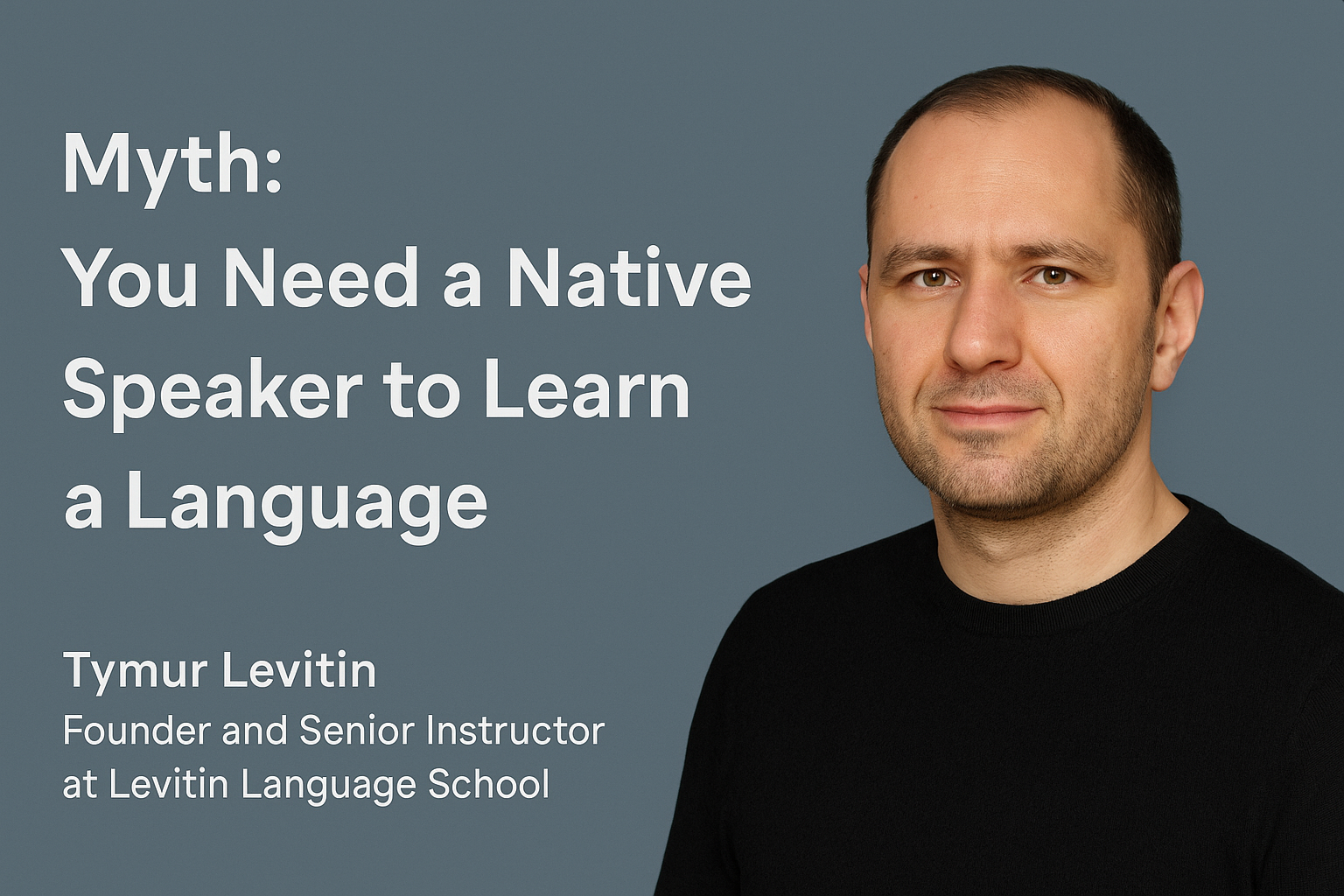🤔 Do You Really Need a Native Speaker?
One of the most persistent myths in language learning is this:
“Only a native speaker can teach you properly.”
It sounds logical. After all, who could know a language better than someone who grew up with it?
But here’s the truth:
Speaking a language ≠ Teaching a language.
And being a native speaker ≠ Being a good teacher — or even a helpful one.
🎓 What Does “Native Speaker” Even Mean?
Let’s start with the term itself. What does it mean to be a native speaker?
- Born in the country?
- Raised in the language, but living elsewhere?
- Fluent from childhood?
- Holding a passport?
- Speaking without an accent?
Someone born in the U.S. who speaks only informal English might be called a native speaker —
but would they know how to explain the difference between “would have done” and “should have done”?
Would they know how to teach pronunciation, stress, formality?
The term “native speaker” hides a thousand questions.
And most of them have nothing to do with your learning.
🧠 Knowing a Language ≠ Knowing How to Teach
A great teacher:
- Understands how you think
- Knows the typical mistakes
- Can explain the why, not just the what
- Has patience, structure, and empathy
- Can teach with or without translation
A native speaker who never had to learn their language might not be able to explain:
- How tenses really work
- Why “I came” and “I have come” are different
- What “You could have told me” implies about the past
In contrast, a qualified non-native teacher has walked your path.
They know where students struggle — because they’ve been there themselves.
🛠️ Teaching Is a Skill, Not a Birth Certificate
You don’t become a good teacher just because you were born in London or Paris.
You become a good teacher through:
- Education
- Experience
- Methodology
- Emotional intelligence
At Levitin Language School, many of our teachers are not native speakers —
but they are skilled, empathetic, multilingual professionals who know how to teach.
They’re not here to impress you with their accent.
They’re here to take you further than you thought possible.
🧭 So When Is a Native Speaker Helpful?
Yes — working with native speakers has its benefits:
- Natural expressions
- Cultural nuance
- Accent immersion
But when?
🔹 Not at the beginning.
🔹 Not when you don’t understand the basics.
Why?
Because if your teacher can’t explain what you’re missing — in your language or even in a shared logic —
then you’re just copying sounds, not building understanding.
The best moment to work with a native speaker is when you already speak — and want to refine.
Not when you’re still guessing what “Could you have been working?” even means.
💡 The Real Question: What Do You Want?
Do you want to:
- Memorize 20 phrases and survive a trip?
- Pass a job interview?
- Write academic papers?
- Speak confidently in different cultures?
There’s no single “best” way — just the most effective one for your goal.
And often, that means a skilled non-native teacher who knows exactly how to take you from confusion to clarity.
✨ Teaching Is About You, Not the Teacher
Real education isn’t about the teacher showing off.
It’s about helping you unlock your potential.
That’s why we don’t promise “native speakers only.”
We promise something better:
Teachers who know how to teach.
Teachers who care if you succeed.
Teachers who speak your language — in every sense of the word.
📌 Rubric: Author’s Column: Tymur Levitin on Language, Meaning, and Respect
📌 Series: Language Myths Busted
✍️ Author: Tymur Levitin, Founder and Senior Instructor at Levitin Language School
🌍 School: Start Language School by Tymur Levitin — https://levitinlanguageschool.com
📚 Meet the author: https://levitinlanguageschool.com/teachers/tymur-levitin/
🧠 Speak Free. Learn Smart.
© Tymur Levitin
🔗 Related Articles:
- Myth: The More You Memorize, the Better You Get
- Stop Memorizing. Start Thinking
- How I Teach Doubt
- The Benefits of Learning Languages Online Without Native Speaker Constraints














